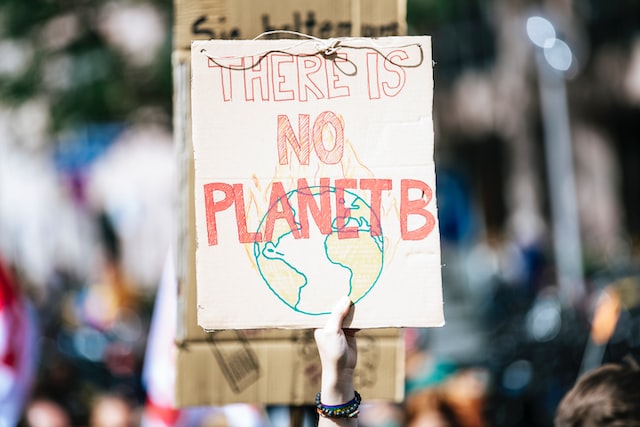Whether you’re an eco-warrior or not, climate change is a problem that needs our help. Here are a few ways you can make a difference.
Greenhouse gases like carbon dioxide and water vapour trap heat in the atmosphere, driving global warming. The world must keep temperatures below 1.5 degrees Celsius (2.7 degrees Fahrenheit) if we want to avoid the worst impacts of climate change.

1. Reduce Your Carbon Footprint
Carbon emissions are the main cause of climate change and reducing your carbon footprint can be a big help. It can help you save money and time, avoid traffic, reduce pollution and improve air quality.
It can also make you healthier and happier. So, why not start today?
Eating local means food produced near you and doesn’t have to travel far, so it doesn’t significantly impact carbon emissions.
But it does take energy to produce and ship food, so choosing plant-based meals can make a big difference in your carbon footprint.
2. Vote for Climate Change Activists
Whether it’s in the United States or elsewhere, climate change is an issue that many voters place at the top of their list. And if you’re an activist, you have the power to influence how that political process unfolds.
Voting for climate-focused candidates can give a strong message to the politicians and media that you trust to represent your interests. It’s important to understand where your candidate stands on climate and find out what he or she has done to support it.
Among the best places to start is the League of Conservation Voters’ scorecard, which keeps track of how Congress members vote on bills and climate-related amendments. It also lists candidates’ social media posts and their environmental history.
3. Learn About Earth
If you want to help climate change, it’s important to learn about your planet. Knowing how it works can help you understand the changes that are happening and why they happen.
Earth is a rocky, bluish planet that orbits the Sun in the solar system. It has a core, mantle and crust.
The core is very hot, about 12,000 degrees Fahrenheit. It’s made of iron and nickel.
The layers under Earth’s surface move and interact all the time. Scientists use this knowledge to study how it affects things like weather, plants and animals.
4. Plant Trees
Trees, fields, and forests all help to reduce carbon dioxide in the atmosphere. Trees pull carbon out of the air through photosynthesis and store it within their trunks, branches, leaves, roots and soil.
As part of a recent study, a team of researchers found that planting new forests could sequester two-thirds of the greenhouse gases humans emit. It fueled another wave of optimism about trees as a climate change solution.
But despite the enthusiasm, trees have a downside. Trees absorb more heat than grass or snow and trap it on the surface, warming local temperatures.
5. Use Less Energy and Water
Using less energy helps lower the demand for fossil fuels, which in turn helps reduce greenhouse gas emissions. This can be accomplished through lowering your thermostat, switching to LED light bulbs, improving your insulation or replacing your old furnace with an efficient electric heat pump.
Water-saving measures also go a long way to helping save energy and reduce greenhouse gas emissions. For example, taking shorter showers, turning off taps while brushing your teeth and using WaterSense-labeled fixtures and appliances are all great ways to reduce your water usage.
6. Help Scientists Find Solutions
The Intergovernmental Panel on Climate Change (IPCC) is currently finalizing its report on options for halting and limiting global warming. It lists a wide range of ideas for mitigation and adaptation, ranging from green energy to building sea walls.
If humanity wants to radically reduce its greenhouse gas emissions, it must stop burning fossil fuels entirely. That requires reducing subsidies for fossil fuels and prohibiting new fossil fuel projects.
Changing the way we use energy will also require addressing societal values entwined with petroleum consumption. This is an area where humanists can help policymakers see how history and culture affect their decisions.

Lynn covers artistic collaborations, curating stories that celebrate craftsmanship and design innovation.





